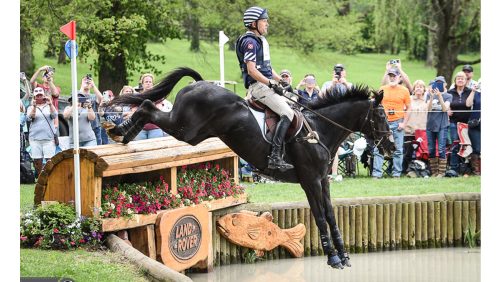At the U.S. Equestrian Federation Board of Directors mid-year meeting in July the board approved an extraordinary rule change expanding the range of responsible parties for drug and medication violations.
The USEF issued a press release today, clarifying that they are considering additional changes to GR404 since the rule was passed. The USEF will be holding two town hall meetings to address the concerns: one Dec. 8 at the USHJA Annual Meeting in Orlando, Fla., and another during the USEF Annual Meeting, taking place Jan. 13-16 in Lexington, Ky.
The new version of GR 404, which goes into effect on Dec. 1 for the 2016 season, states that: “Trainers and persons responsible, in the absence of substantial evidence to the contrary, are responsible and accountable under the penalty provisions of these rules. The trainer and other persons responsible are not relieved from such responsibility as a result of the lack or insufficiency of stable security.”
The rule says that persons responsible “may include the rider who rides, vaults, or drives the horse and/or pony during a competition, and/or the owner, trainer, and other support personnel.”
The new rule also explicitly states that a junior may be considered a person responsible.
The previous version of the rule stated that the “trainer” was responsible, defining the trainer as “any adult who has or shares responsibility for the care, training, custody, condition, or performance of a horse and/or pony.”
ADVERTISEMENT
Several USEF committees weighed in with comments during the mid-year meeting. The National Hunter Committee, among others, recommended disapproval, with the comment, “The committee disapproves this as an extraordinary rule change but would consider approving as a standard rule change with a 4/1/16 effective date.” The Connemara and Welsh Committees both pointed out that non-USEF members who could be persons responsible, like grooms and braiders, will be difficult to sanction.
Moroney sits on the USEF Hearing Committee, which introduced the new version of GR 404 approved by the board. According to him the rule wasn’t a change as much as a clarification. He explained that the Hearing Committee already works hard to get to the bottom of who is actually at fault, rather than whose name is on an entry blank.
“This isn’t really changing anything in the process,” said Moroney shortly after that extraordinary rule change was announced to the public. “You can charge other people now. We’re already stating something that can already happen, but now we’re stating it up front and boldly. This way we can cast the net wider at the beginning.
“I think it’s been a long time coming,” he continued. “We’ve had a lot of conversations over the years about it. If you’re doing things correctly, this shouldn’t bother anyone.”
Moroney explained that writing a groom’s name down as trainer so the real trainer isn’t blamed has never fooled the Federation. He pointed to the monthly Hearing Committee reports as evidence, as they often list recognizable trainers’ names.
“People felt the rule was completely literal, but they didn’t pay attention to the fact that we will make a determination whether that person is actually responsible,” he said. “We ask a lot of questions and pretty quickly you learn they don’t make the decision—they guy in the barn who was hired two weeks ago isn’t the guy deciding if your horse gets GABA.”
ADVERTISEMENT
This conversation coincides with a disagreement over who should be held responsible in a high-profile USEF drug finding, though representatives from USEF have not confirmed the case is related to the rule change. In July the USEF suspended Brigid Colvin and Steve Rivetts in the wake of a positive tests for gamma-aminobutyric acid in excess of normal physiological levels in Betsee Parker’s Inclusive. Colvin filed a civil suit in New York against the USEF, stating that “the USEF decision [to ban and fine her] was arbitrary and capricious, an abuse of discretion and not supported by substantial evidence.”
Colvin denied that she had been involved in the care, custody and control of Inclusive on the day, even though she had identified herself as a trainer of record to the USEF testing official.
The new version of GR404 was approved in early July, after Colvin’s hearing in May but before the official announcement of the ruling.
Extraordinary rule changes bypass the traditional rule change process, and the federation generally tries to minimize the number of extraordinaries passed. According to the rule change proposal, the justification for this came to ensure that this rule is in effect for the 2016 competition year.
“I think welfare rules sometimes need to be extraordinary,” said Moroney. “We talked a lot about this in town hall meetings this year. Overwhelmingly we’ve heard, ‘Keep everyone responsible. Fix this problem.’
“The part that will be the sea change is the conversations taking place between owners, riders and trainers,” he continued. “If I were still training professionally, I would have a conversation with every one of my owners with the veterinarian present and make sure they know what the vet prescribes for their horse and sign off on it.”















